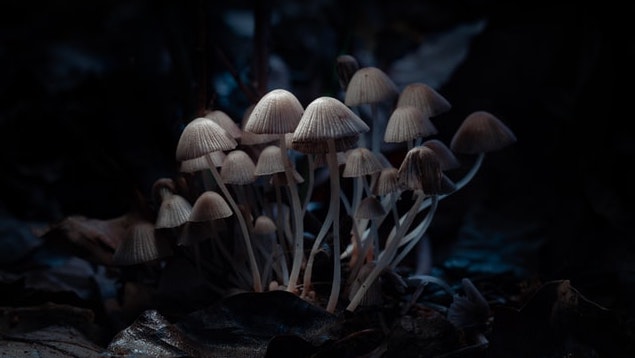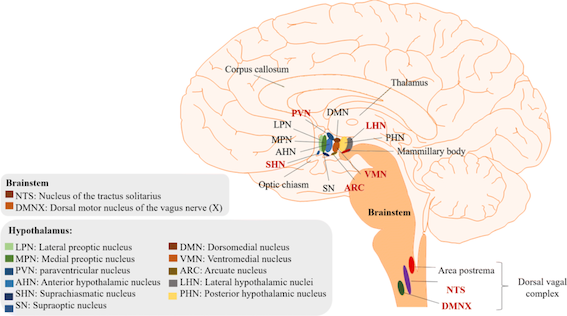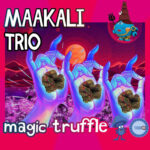Eating Disorders Are Difficult To Treat
One of the reasons that eating disorders are difficult to identify and treat, is that they can present in many ways. Dispelling the prevailing stereotype, less than 6% of people suffering from an eating disorder present as medically underweight, which is something that has for a long time been the assumed marker of disordered eating. There are many types of eating disorders including anorexia nervosa, bulimia and binge eating disorder. Anorexia has one of the highest mortality rates of any psychiatric illness. This is due to both the physical and mental toll of the illness. Around 26% of those suffering from an eating disorder will attempt suicide in their lifetime. As well as this, the physical effects of starving or binging and/or purging can be devastating.

As eating disorders are a behavioral disorder they are very difficult to treat. Traditional treatments include cognitive behavioral therapy, diet education and occasionally medication, however, most sufferers will relapse during their lifetimes.
Can Psychedelics Be Used To Treat Eating Disorders?
The rise of research into using psychedelics like psilocybin (from magic mushrooms and truffles) and MDMA to treat mental health conditions has opened up a new realm of possibility. We have waxed lyrical about psilocybin being able to effectively treat depression, PTSD and OCD. Like these disorders, eating disorders can be characterized by negative thought patterns and behavioral cycles that are extremely difficult to break out of. The magic of mushrooms, and their other psychedelic cohort, is that they’re able to help the sufferer ‘reset’ unwanted behaviors.

This is why the new research into treating eating disorders with psychedelics is so exciting — it opens up a much more effective possibility for change. It could save millions of lives.
So let’s check out what studies are currently in the works:
Psilocybin and Binge Eating Disorder
Late last year Tryp Therapeutics were given the green light by the FDA to go ahead with their Phase 2a study into synthetic psilocybin for binge eating disorder. This approval by the FDA marked another huge step in psychedelic recognition by the powers that be. It is a welcome recognition too — binge eating disorder (or BED) is the most common eating disorder in the United States, although not as well known as anorexia or bulimia. The National Eating Disorder Association categorizes BED as;
“…a severe, life-threatening, and treatable eating disorder characterized by recurrent episodes of eating large quantities of food (often very quickly and to the point of discomfort); a feeling of a loss of control during the binge; experiencing shame, distress or guilt afterwards; and not regularly using unhealthy compensatory measures (e.g., purging) to counter the binge eating.”
The condition can take over a sufferer’s life both emotionally and physically. It can also cause a whole range of extra repercussions such as depression or obesity.
Psilocybin and Anorexia Nervosa
Imperial College London is currently advertising for participants in a study to determine if psilocybin can be an effective treatment for those suffering from anorexia nervosa. As it has the highest mortality rate of any psychiatric disorder, as well as a less than 50% rate of full recovery, finding an effective treatment is key. The Imperial College study specifies that applicants must have been suffering from the condition for over 3 years and have found no other treatments effective. The trial itself will take place over a period of 6 weeks. It will consist of eight study visits, three of which will include psilocybin doses. The doses will vary each time, but the maximum a volunteer will receive is 25mg. During the trial there will also be two MRI scans, five EEG recordings, and therapeutic and psychological sessions. The volunteers will then have 1 year of follow-up.

Additionally, the University of Sydney, Australia, recently published its findings on a similar study. It concluded that;
“…psilocybin is a safe intervention when administered in a carefully controlled clinical setting and has notable therapeutic potential in a range of severe refractory psychiatric illnesses. The unique rapidity and long-term durability of psilocybin’s effects in studies to date indicates much-needed novel, rapid-acting and potentially cost-effective enhancement to current approaches.”
Basically, the use of psilocybin could be a ‘much-needed’ game changer in how we treat conditions such as anorexia. May the research continue!
MDMA and Eating Disorders
It’s not just psilocybin being given the chance to work its magic. MDMA, once seen as a party drug, is getting in on the act too. MAPS recently published a study that explored MDMA assisted therapy to treat those suffering from PTSD. It turns out that PTSD and eating disorders are often ‘comorbid’ meaning that they often manifest together. Of the 90 participants suffering from PTSD, 46.5% of them also had symptoms of an eating disorder. The study found that the MDMA assisted therapy did reduce the symptoms of those suffering from eating disorders. However, more research is needed to conclude. Read the full study here.
Why Psychedelics Are Effective In The Treatment of Eating Disorders
Psychedelics like psilocybin reduce the activity of the Default Mode Network (DMN) in the brain. The DMN controls our self referential, internal mental state processes — i.e. our ‘sense of self’. Over time these processes become habitual, a well worn path our brain automatically takes. If these are negative habits and paths we get caught in negative thought and behavioral processes. This is characteristic of many mental health conditions — depression, OCD, PTSD and eating disorders.

By reducing the activity of the DMN, psychedelics offer the possibility to break from these habits (such as starvation or binging in the case of eating disorders) and create new pathways. Actual neural pathways — as psychedelics can improve neuroplasticity and creativity. This is key for those suffering from eating disorders who’s ability to be cognitively flexible has been greatly reduced.
The Future
As more of these studies begin and are published, the more we will learn about the effectiveness of psychedelics for eating disorders. The future in this field looks bright however — a promising sign for those who once thought their disordered eating was a life sentence.





